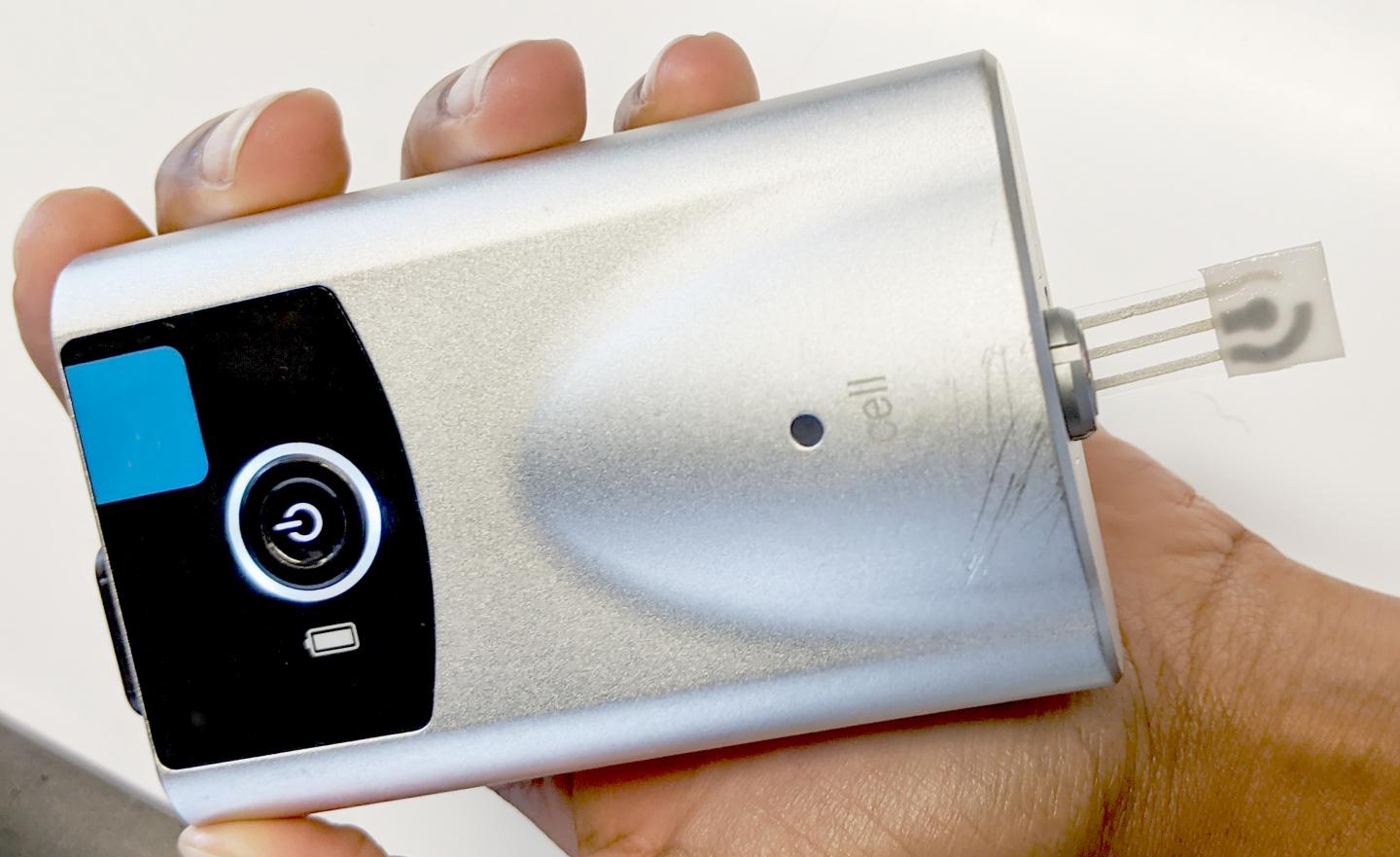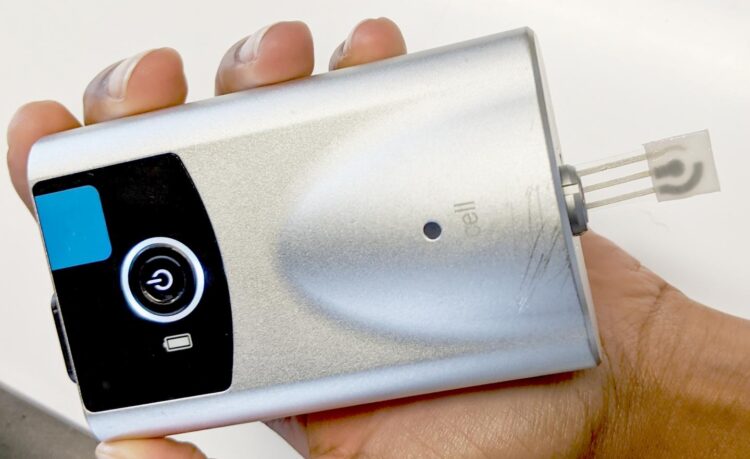
Credit: Adapted from ACS Sensors 2021, DOI: 10.1021/acssensors.1c00139
Many people with diabetes endure multiple, painful finger pricks each day to measure their blood glucose. Now, researchers reporting in ACS Sensors have developed a device that can measure glucose in sweat with the touch of a fingertip, and then a personalized algorithm provides an accurate estimate of blood glucose levels.
According to the American Diabetes Association, more than 34 million children and adults in the U.S. have diabetes. Although self-monitoring of blood glucose is a critical part of diabetes management, the pain and inconvenience caused by finger-stick blood sampling can keep people from testing as often as they should. Scientists have developed ways to measure glucose in sweat, but because levels of the sugar are much lower than in blood, they can vary with a person’s sweat rate and skin properties. As a result, the glucose level in sweat usually doesn’t accurately reflect the value in blood. To obtain a more reliable estimate of blood sugar from sweat, Joseph Wang and colleagues wanted to devise a system that could collect sweat from a fingertip, measure glucose and then correct for individual variability.
The researchers made a touch-based sweat glucose sensor with a polyvinyl alcohol hydrogel on top of an electrochemical sensor, which was screen-printed onto a flexible plastic strip. When a volunteer placed their fingertip on the sensor surface for 1 minute, the hydrogel absorbed tiny amounts of sweat. Inside the sensor, glucose in the sweat underwent an enzymatic reaction that resulted in a small electrical current that was detected by a hand-held device. The researchers also measured the volunteers’ blood sugar with a standard finger-prick test, and they developed a personalized algorithm that could translate each person’s sweat glucose to their blood glucose levels. In tests, the algorithm was more than 95% accurate in predicting blood glucose levels before and after meals. To calibrate the device, a person with diabetes would need a finger prick only once or twice per month. But before the sweat diagnostic can be used to manage diabetes, a large-scale study must be conducted, the researchers say.
###
The authors acknowledge funding from the University of California San Diego Center for Wearable Sensors and the National Research Foundation of Korea.
The abstract that accompanies this paper is available here.
The American Chemical Society (ACS) is a nonprofit organization chartered by the U.S. Congress. ACS’ mission is to advance the broader chemistry enterprise and its practitioners for the benefit of Earth and all its people. The Society is a global leader in promoting excellence in science education and providing access to chemistry-related information and research through its multiple research solutions, peer-reviewed journals, scientific conferences, eBooks and weekly news periodical Chemical & Engineering News. ACS journals are among the most cited, most trusted and most read within the scientific literature; however, ACS itself does not conduct chemical research. As a leader in scientific information solutions, its CAS division partners with global innovators to accelerate breakthroughs by curating, connecting and analyzing the world’s scientific knowledge. ACS’ main offices are in Washington, D.C., and Columbus, Ohio.
To automatically receive news releases from the American Chemical Society, contact [email protected].
Follow us: Twitter | Facebook
Media Contact
Katie Cottingham
[email protected]





